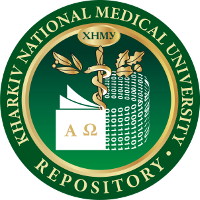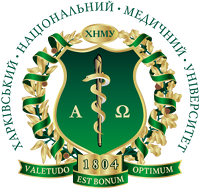Будь ласка, використовуйте цей ідентифікатор, щоб цитувати або посилатися на цей матеріал:
http://repo.knmu.edu.ua/handle/123456789/21231| Назва: | General nutritional practices in school-age children of Kharkiv region |
| Автори: | Chaychenko, Tetyana Gonchar, Margaryta Chumachenko, Tetyana Klymenko, Viktoriia Rybka, O. Kharkovа, M. Petrenko, E. Starik, D. Чайченко, Т. В. Гончарь, М.О. Рибка, О.С. Харькова, М.О. Петренко, Є.К. Старік, Д.С. |
| Теми: | nutrition general nutritional practices |
| Дата публікації: | 2018 |
| Бібліографічний опис: | General nutritional practices in school-age children of Kharkiv region / T. Chaychenko, M. Gonchar, T. Chumachenko, V. Klymenko, O. Rybka, M. Kharkova, E. Petrenko, D. Starik // Inter Collegas. – 2018. – Vol. 5, № 3. – P. 126–128. |
| Короткий огляд (реферат): | Pediatric nutrition has become one of the cornerstones of global health due to its association with the most insidious non-communicable diseases. As part of the research "Assessment of the current nutritional status, nutrition-related health problems in school-age children in Ukraine", conducted at Kharkiv National Medical University, general nutritional habits and practices of school-age children of Kharkiv region were assessed for the further elaboration of educational programs. Current nutritional status was assessed by using original questionnaire (adapted from the FAO recommendations) in 392 school-age children, divided into 3 groups: primary school (75 children aged 6–9), middle school (202 children aged 10–14) and high school (115 children aged 15–18.), who were randomly selected in urban and rural areas of the region. The study showed a trend for irregular nutrition, ascending with age. Family traditions for regular meals are still powerful. There is a decrease of this tendency in high-school age, when the quarter of children become less sure in exact impact factors on the choice of food. It was established that about 20 % of school-age children skipped their breakfasts, but understood possible health-related outcomes. Almost all children were found to have unhealthy snacks such as pastry, sweets and sugary beverages. Besides, 80 % of school-age children spend their pocket money on food and purchase it at the nearest groceries or school canteen. And this tendency is statistically higher in middle-school age. There is no particular involvement of parents in day-time nourishment as just 13 % of them give lunch-boxes to their children. Conclusions: 1. Nutrition of school-age children is not balanced with incorrect energy distribution during the working day: tendency for skipping breakfasts and to have multiple unhealthy snacks between main meals (pastry, sweets, sugary drinks etc.). 2. Educational programs for school-aged children must be focused on the choice of healthy snacks and drinks as well as outcomes of inappropriate nutrition. Particular attention should be paid to the education of middle-school children. 3. Parents should be actively involved in the educational programs due to the significant influence of family traditions on the nutrition of school-age children. |
| URI (Уніфікований ідентифікатор ресурсу): | https://repo.knmu.edu.ua/handle/123456789/21231 |
| Розташовується у зібраннях: | Наукові праці. Кафедра педіатрії № 1 та неонатології |
Файли цього матеріалу:
| Файл | Опис | Розмір | Формат | |
|---|---|---|---|---|
| General nutritional practices in school-age children of kharkiv region.pdf | 20,35 kB | Adobe PDF |  Переглянути/відкрити |
Усі матеріали в архіві електронних ресурсів захищені авторським правом, всі права збережені.

